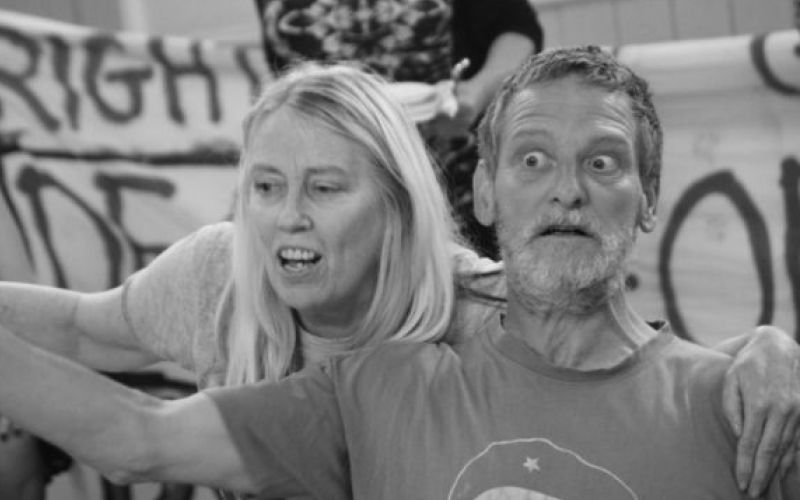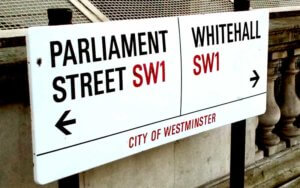Organisers of some of the growing number of Disability Pride events being held across the country have explained why they are so important to disabled people.
On Saturday 14 July, the second Disability Pride Brighton will take place, followed two months later, on 16 September, by a Disability Pride celebration in Norwich.
They follow Disability Pride events that took place last December in York and Bromley, south London, both organised around the UN’s International Day of Persons with Disabilities (IDPD).
The first Disability Pride Brighton took place last year, and was founded by disabled campaigner Jenny Skelton, who decided to hold an awareness-raising event in the city after one of her three adopted disabled children was thrown out of a pub because of her impairment.
Skelton said: “I think it is essential that disabled people can have pride in who they are and that disability discrimination awareness continues to be raised.”
She said she would like to see an annual Disability Pride festival in every city*.
She said: “I believe that Disability Pride is such an obviously great thing and people are realising that it is essential to be able to celebrate being who they are.
“People have heard about Disability Pride events and want to hold their own, which can only be a wonderful step towards eradicating disability discrimination.”
This year’s Disability Pride Brighton, which will again be run by disabled people, aims to raise awareness of disability, reduce isolation for disabled people, and “engage with and inform the non-disabled community, whilst hosting a great day out”.
A parade along Brighton’s promenade will be led by carnival band Unified Rhythm. More than four-fifths of the band’s members are disabled.
The event will be opened by disabled artist Alison Lapper, Skelton and Brighton’s mayor, Dee Simson, with attractions including live music, performances and speeches by disabled people, and work by disabled artists.
Funding has come from organisations including Sussex Community Foundation, Brighton & Hove Buses, and People’s Health Trust.
Norfolk’s Disability Pride event will also feature a parade and celebrate disabled people and the diversity of the community, and will showcase local disabled artists, performers and speakers.
It is being run at The Forum, in Norwich, by the disabled people’s organisation Equal Lives, in partnership with The Forum, Norwich City Council, Norfolk County Council and University of East Anglia.
Other events will take place before and after the day itself, including a performance on 12 September of A Very Queer Nazi Faust (pictured), an experimental participatory performance created by Norfolk-based poet, artist and disability rights campaigner Vince Laws, which highlights issues around cuts to disability benefits and also celebrates gay rights.
Penny Parker, membership development officer at Equal Lives, said: “We want to get the message out there that we are disabled people and proud of it and no one should be afraid to be who they are.”
She pointed to the “increasingly negative attitudes” towards disabled people that have arisen during the years of austerity, and she said that events like Disability Pride were “emerging to show a positive image of disability”.
She said: “Far from the workshy layabouts portrayed, disabled people are out there getting on with their lives, working, performing, dancing, taking part in sports, being parents, owning homes, going on holiday and all the other things that go with living an independent and fulfilling life.”
She added: “Disability Pride events are a way of raising awareness and encouraging disabled people to get out there and give things a go.
“They are also there to provide disabled people the support and adjustments to be able to do so.
“Our Disability Pride event is particularly keen to also promote the work of local groups and organisations who offer services, support and a huge range of activities and opportunities.
“Businesses are also a focus of our event as there is some excellent work going on to make products and services more accessible but too often the focus is on the businesses that are not doing anything.
“We hope that the positive demonstration of what can be achieved when businesses and disabled people work together will encourage other businesses to follow suit.”
Last December, York Disability Pride ran over three days on 1, 2 and 3 December 2017 and was organised by York Independent Living Network, York: Human Rights City and Explore York.
It was about “being loud, proud and out there when it comes to disability, impairment and health conditions” and recognised “both the barriers, discrimination and exclusions disabled people face” and the contributions they make to their communities and societies.
Bromley Disability Pride also took place on 3 December and was organised by the user-led group Bromley Experts by Experience (Bromley XbyX).
It will be building on last year’s experience with another Disability Pride event in December.
Barry McDonald, peer development worker for Bromley XbyX, said: “If people can be proud to be LGBT+, we can be proud to be disabled.
“We deserve the same recognition and we have to start somewhere. The events are small but show that disabled people have talents and a voice – I think there is a growing demand for this and rightly so.
“Celebrating disability pride gives people a platform to be proud of themselves and not shy of showing that they have got talents.
“These events give disabled people an important and rare chance to grow as people in a supportive environment.
“This can help grow people’s self-esteem and confidence and bring out skills and ways to express themselves and their personalities in ways that can be difficult in day-to-day life due to the barriers we face.”
*Jenny Skelton is happy to offer advice to disabled people in other parts of the country who are considering setting up a Disability Pride festival. They can email her at: [email protected]
Picture by Ann Nicholls

 Advice services run by disabled people under threat due to ‘constant challenge’ of securing funding
Advice services run by disabled people under threat due to ‘constant challenge’ of securing funding Ministers break national strategy pledge by asking non-user-led charities to join taskforce
Ministers break national strategy pledge by asking non-user-led charities to join taskforce Conference plans fightback against independent living ‘catastrophe’
Conference plans fightback against independent living ‘catastrophe’